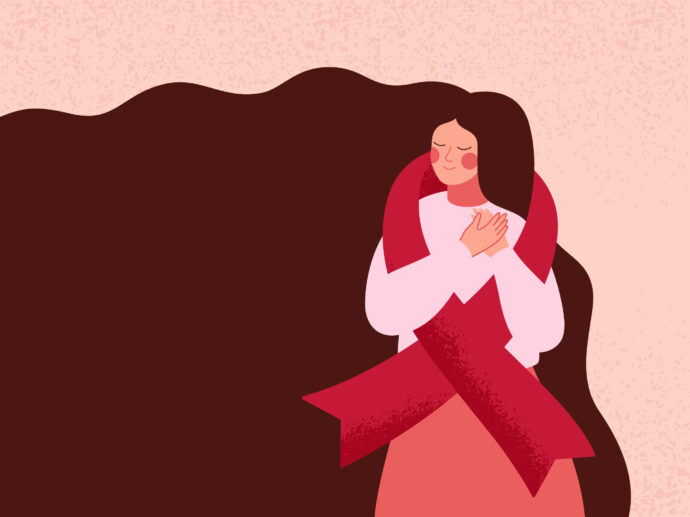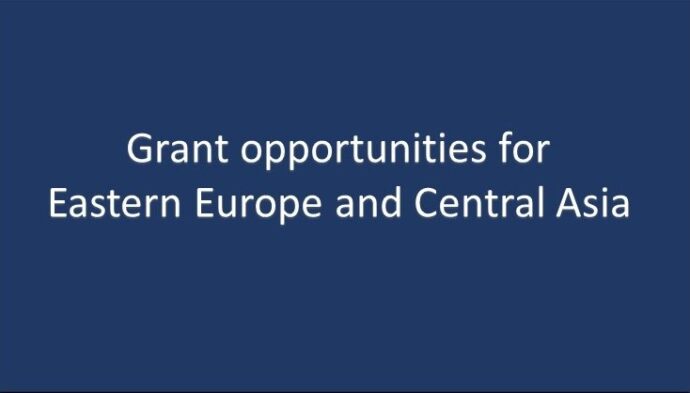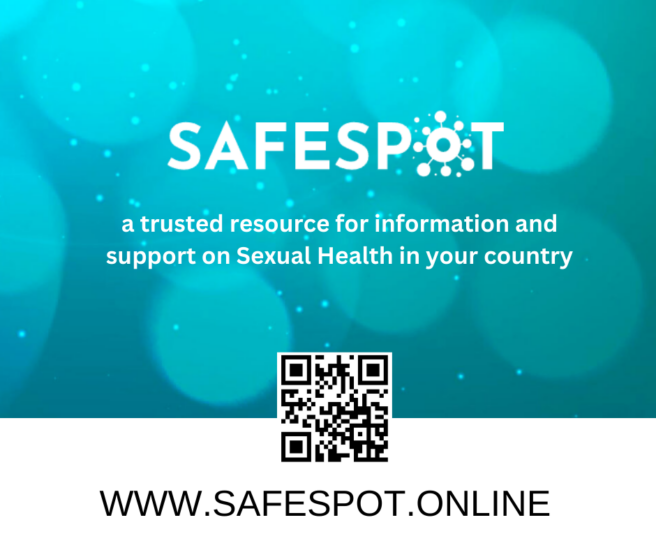Author: Olesya Kravchuk, AFEW International
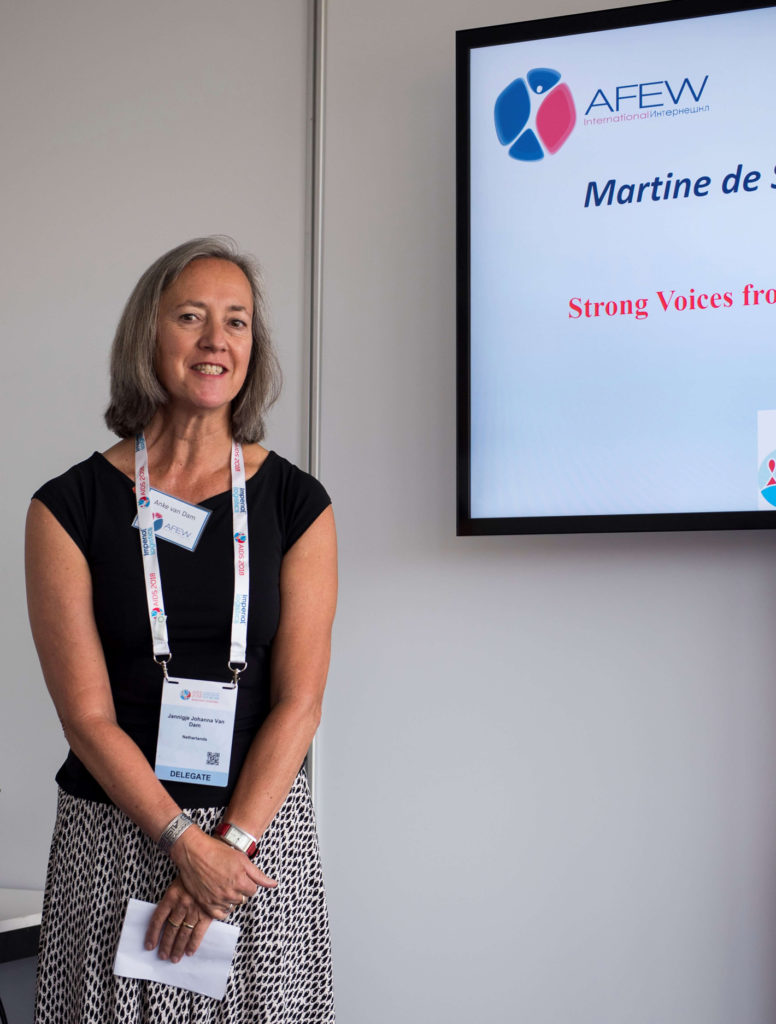
Anke van Dam on AIDS 2018 Conference
AFEW International executive director Anke van Dam sums up the results of 2018 and gives
–
– It has been an amazing year for us! In the first half year our team prepared very carefully and intensely for the 22nd International AIDS Conference AIDS 2018 – the biggest event in AFEW’s lifetime. It is the biggest health conference in the world and this time it was a very important event for Eastern Europe and Central Asia (EECA). We got to successfully highlight AFEW and EECA region during the Conference. Next to this major event for us, we also had our project activities, like Bridging the Gaps project, Fast-Track TB/HIV Responses for Key Populations in EECA Cities project, Improved TB/HIV Prevention and Care – Building Models for the Future project. We were involved in the City Health Conferences, and in the STI.HIV.Seks Dutch national congress. AFEW was also in New York to addressing the needs for diagnostics and treatment for tuberculosis in Eastern Europe and Central Asia at a side event during the United Nations General Assembly high-level meeting on tuberculosis in September and during the 49th Union World Conference on Lung Health in October in the Netherlands.
– Taking into consideration that AIDS 2018 Conference was so important for the region where AFEW works, what were the outcomes of this event for EECA?
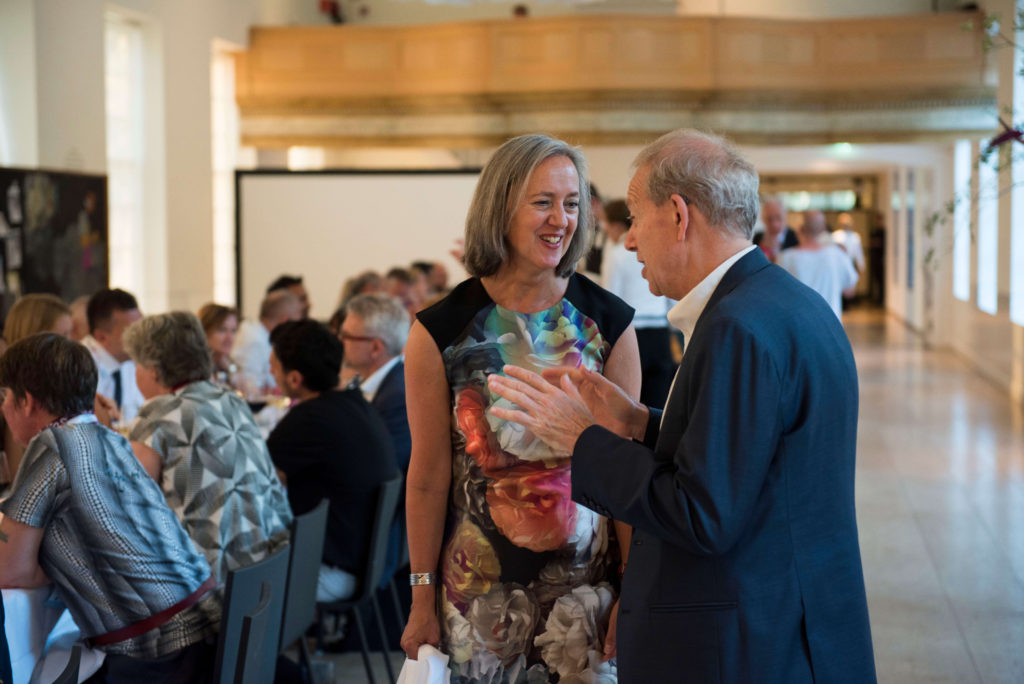
Anke van Dam on AIDS 2018 Conference
– Eastern Europe and Central Asia were really in the spotlight, with so many partner organisations and colleagues we shared our successes and challenges to stop new HIV cases in the region. You could hear Russian everywhere, in the Global Village, corridors, network meetings! Herewith some figures: compared with the International AIDS Conference 2016 that took place in South Africa, the EECA representation during AIDS 2018 Conference in Amsterdam increased from 3.9% to 10.5% at all activities included in the official programme. We had 16 speakers from the EECA region, which represented 5% of all speakers, and this is a big success. Thanks to the promotion of AIDS 2018 to the EECA region and thanks to AFEW’s community based participatory research project, the number of abstracts submitted from the region were triple to the number submitted for AIDS 2016. In total, there were 627 abstracts submitted. AFEW International organized mentors’ support to the partners, and that is why the quality of the abstracts improved substantially, which increased the chance of acceptance. Thus, 187 abstracts from the EECA region were accepted which marks a six-fold increase when compared to the previous conference. In total, 604 delegates from EECA visited the AIDS2018 – an almost five times increase in comparison to AIDS 2016 and AIDS 2014.
– AFEW has invited some Conference participants with Martine de Schutter Scholarship Fund that was established not long before AIDS 2018. How many EECA participants got the scholarships to come to Amsterdam?
– It was very important for AFEW to ensure that many partners and colleagues were able to come to Amsterdam to get to learn about the state of the art in HIV prevention, treatment and care, and to get in touch with other (Western) activists, scientists and clinicians, AFEW used the AIDS 2018 as another opportunity to be the bridge between East and West. The amount of scholarships that International AIDS Society (IAS) awarded to the EECA region has increased dramatically both in comparison to the previous conference, and also to the AIDS 2010 in Vienna. In total IAS has granted 149 scholarships to delegates from the EECA region, and that was 13% of all IAS scholarships. Of this amount, 62 scholarships were funded by AFEW International. We have contributed 85,000 EUR to the IAS scholarship fund. On top of that, AFEW International has disbursed directly at least 57 more scholarships to Community-based participant research project (CBPR) participants, journalist, (young) researchers, activists, and governmental official delegates supported through AFEW offices. There was an increase in participation from the Central Asia in comparison to AIDS 2010, with total increase of 18 delegates from Kazakhstan, Kyrgyzstan and Tajikistan. That was mainly thanks to increased scholarship support to these specific countries.
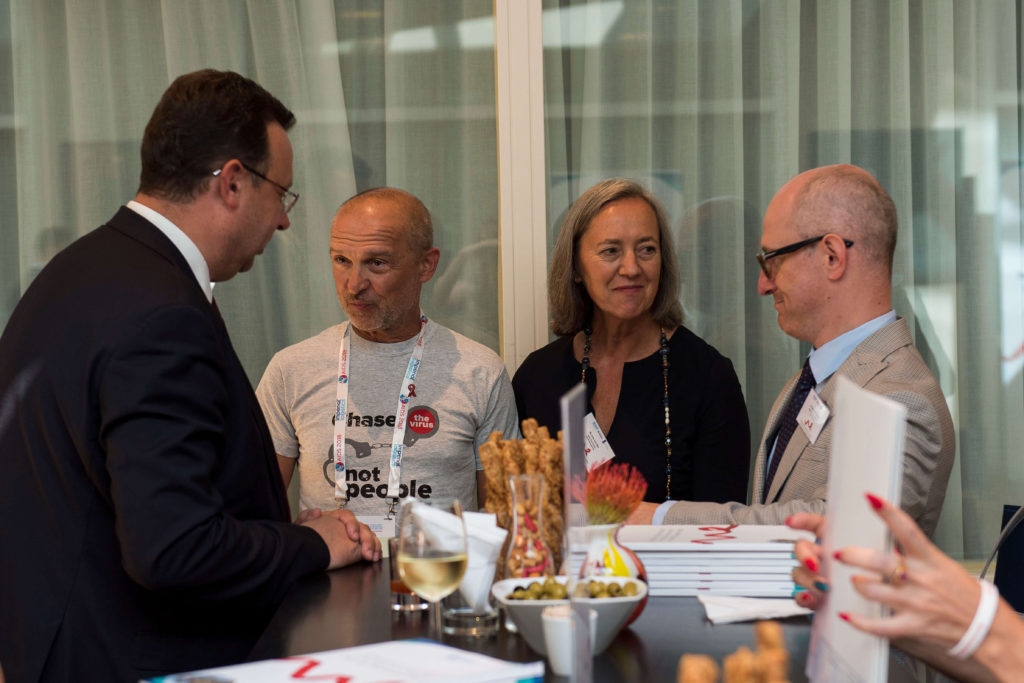
Anke van Dam on AIDS 2018 Conference
– What are AFEW’s plans for the year of 2019?
– There are exciting developments for 2019. During AIDS 2018 Conference we have got the grant from Elton John AIDS Foundation (EJAF). Within this grant, with Aidsfonds in the lead, we have established the Emergency Support Fund for Key Populations in the EECA region. We are currently accepting the applications for emergency grants from 10 countries in Eastern Europe and Central Asia. With these small grants we are supporting organisations representing key populations in surviving in difficult situations which they face due to legal barriers, stigma and discrimination, financial challenges and political restrictions. Besides that, we are continuing the activities within Bridging the Gaps project, Fast-Track TB/HIV Responses for Key Populations in EECA Cities project, Improved TB/HIV Prevention and Care – Building Models for the Future project, and our activities in Russia. Recently, we have got the approval to start activities in the framework of the PITCH project, which will give us opportunities to continue working with the EECA cities, and to expand our activities in Russia further. Not long ago we have got 16,000 EUR of donation to Martine de Schutter Scholarship Fund from ViiV Healthcare UK Ltd. This financing will be used as an effective tool for the EECA scientists, clinicians, community professionals and activists for bringing challenges of EECA region on international agenda and learning from their peers through participation in the international conferences. AFEW will start with EECA INTERACT, a platform for (young) researchers in the EECA region to present their studies. AFEW will continue to be the bridge builder between communities and authorities, between communities and health care providers and between East and West for a better health in the EECA region.


